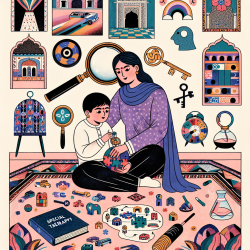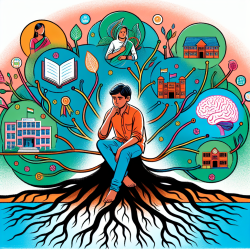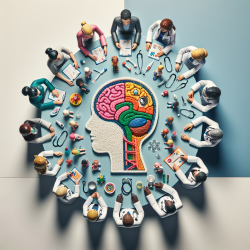As a practitioner in the field of rehabilitation therapy, it's essential to continually improve our skills and approach to care. A recent research article titled Indigenous Community-Directed Needs Assessment for Rehabilitation Therapy Services offers valuable insights that can significantly enhance our practice, especially when working with Indigenous communities.
Understanding the Research
The study, conducted by M. Reichert et al., highlights the critical need for culturally responsive rehabilitation services in Indigenous communities. The research involved sharing circles and semi-structured interviews with community members to identify barriers and needs related to rehabilitation therapy services.
Key Findings and Recommendations
The research identified five primary themes:
- Barriers to Rehabilitation Care: Issues such as long wait times, travel difficulties, and systemic racism.
- Impacts on Family and Quality of Life: How lack of access to services affects daily living and family dynamics.
- Calls for Services: The community's desire for more accessible and culturally integrated rehabilitation services.
- Strength-Based Supports: The importance of family and community support in coping with functional impairments.
- What Care Should Look Like: A vision for respectful, culturally appropriate, and effective rehabilitation care.
Implementing the Research in Practice
To improve your skills and provide better care, consider implementing the following recommendations from the study:
- Rehabilitation Staffing Requirements: Ensure full-time, committed rehabilitation staff within Indigenous communities.
- Integration with Cultural Care: Work closely with Traditional Knowledge Keepers to embed cultural practices into rehabilitation programs.
- Practitioner Education and Awareness: Educate yourself on Indigenous history, intergenerational trauma, and culturally responsive care.
- Patient and Community-Centered Care: Focus on patient, family, and community-directed care that leverages the strengths of Indigenous communities.
- Feedback and Ongoing Evaluation: Establish feedback mechanisms to ensure continuous improvement and accountability.
Encouraging Further Research
While this study provides a robust framework, it's crucial to continue researching and adapting our approaches to meet the evolving needs of Indigenous communities. Engage with community members, seek out additional studies, and remain committed to culturally responsive care.
To read the original research paper, please follow this link: Indigenous Community-Directed Needs Assessment for Rehabilitation Therapy Services.










